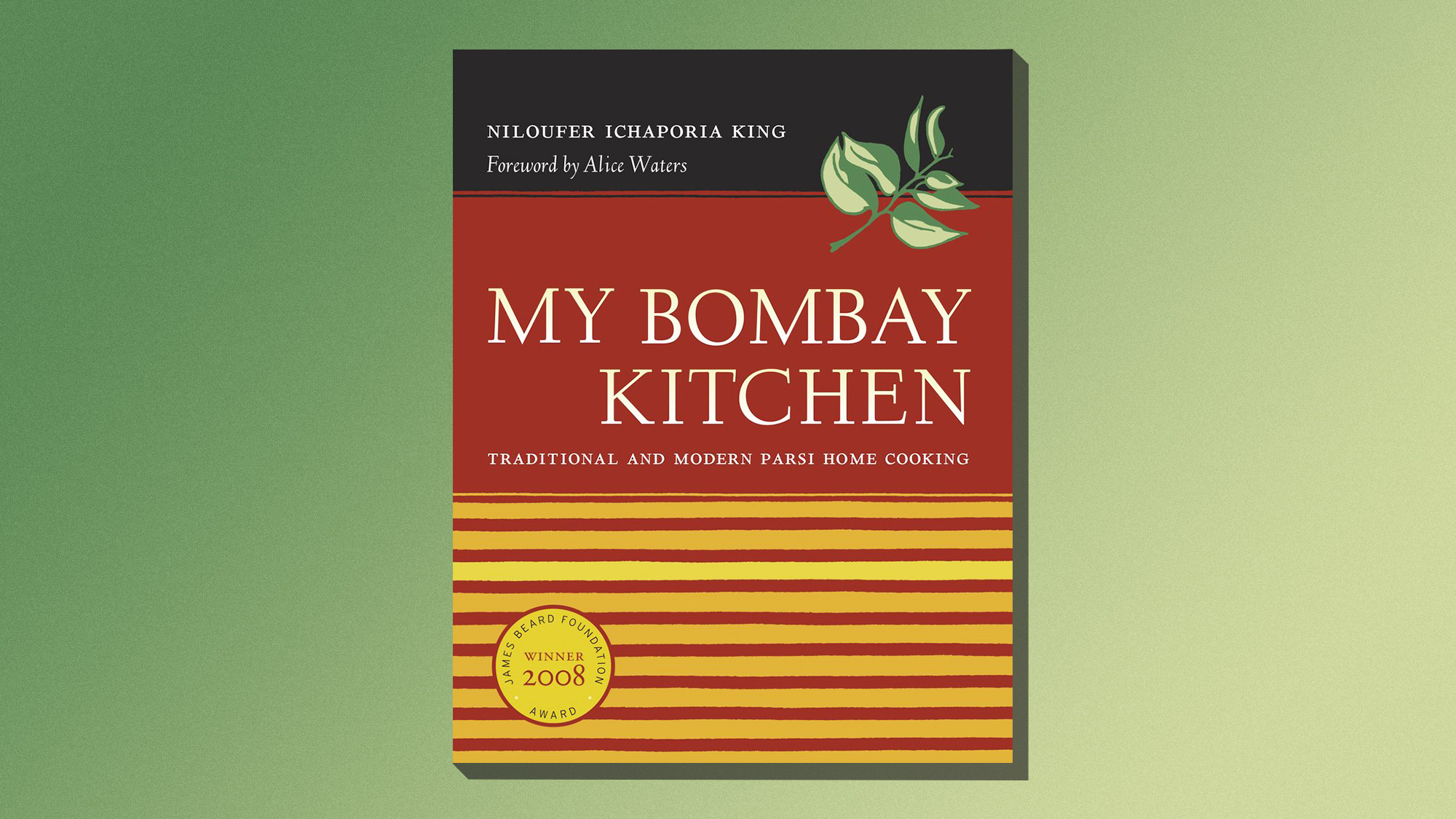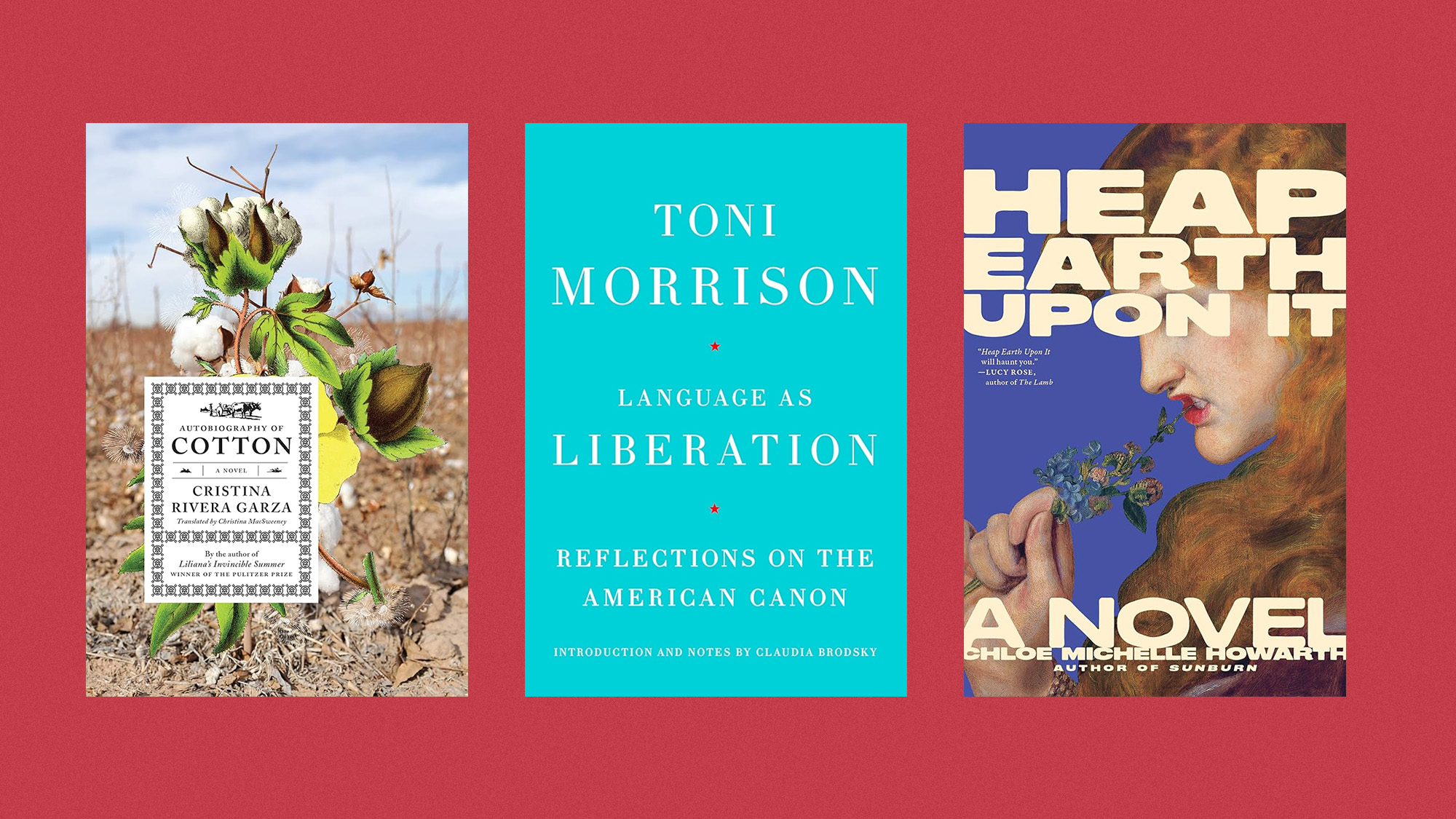One great cookbook: Niloufer Ichaporia King’s ‘My Bombay Kitchen’
A personal, scholarly wander through a singular cuisine


A free daily email with the biggest news stories of the day – and the best features from TheWeek.com
You are now subscribed
Your newsletter sign-up was successful
Telling your personal narrative through food is a common cookbook trope. Taking an anthropological wander through a people’s or country’s food culture is another prevailing cookbook methodology.
Less ubiquitous is an author who merges the two, swiveling a mirror to look at both themself and their ancestral background. Niloufer Ichaporia King’s 2007 masterpiece, “My Bombay Kitchen: Traditional and Modern Parsi Home Cooking,” might be the exemplar of this double-vision.
Parsis and global cooking
Across the book’s 300-plus pages, King tells the story of the Parsis, a group of Persians who practiced Zoroastrianism thousands of years ago and were persecuted after the Arab-Islamic conquest of Persia. As the persecuted often do, the Parsis fled. Many landed on the western coast of what’s now India.
The Week
Escape your echo chamber. Get the facts behind the news, plus analysis from multiple perspectives.

Sign up for The Week's Free Newsletters
From our morning news briefing to a weekly Good News Newsletter, get the best of The Week delivered directly to your inbox.
From our morning news briefing to a weekly Good News Newsletter, get the best of The Week delivered directly to your inbox.
This meant, for King’s family, establishing themselves in Bombay, merging their Persian cooking with Indian influences. The resulting cooking featured an “immense range of tastes and techniques,” King said in “My Bombay Kitchen,” a real “magpie cuisine.”
King moved from Bombay to Baltimore in 1962, then to Berkeley, California, acquiring all the more culinary influences as she worked on a doctorate in anthropology at the University of California, Berkeley. In time, she connected with the food-world rabble-rousers at the formative Chez Panisse restaurant, eventually spearheading an annual Nowruz (Persian New Year) dinner there for more than a decade. There, King’s bright way with the flavors of India and Persia showcased with California’s faultless ingredients exploded how to think about cooking and eating.
Innovation in the kitchen
“My Bombay Kitchen” compiles recipes that flaunt that same fresh, innovative cooking style. King’s Parsiburgers are a breezy take on kebabs, with your choice of ground meat seasoned with chopped yellow or green onions, ginger, fresh green chiles, cilantro and mint. You shape them into patties, sizzle them in a skillet and serve them however you like. This is how King cooks: the spirit of Persia and the Indian subcontinent on the wings of California’s freewheeling individuality.
Parsis are mad for potatoes. “If I had to draw a Parsis food pyramid, it would rise out of a plinth of potato chips,” said King in her book. There are recipes for both fried angel-hair potatoes and potato wafers, aka potato chips, plus hash with curry leaves and turmeric.
A free daily email with the biggest news stories of the day – and the best features from TheWeek.com
Of note is King’s kicky, sharp tomato chutney. It’s fresh and plucky with loads of cane vinegar, chile powder, cloves, cinnamon and matchsticks of fresh ginger. Recipes that become ritual are a surefire tell of an indispensable cookbook.
Scott Hocker is an award-winning freelance writer and editor at The Week Digital. He has written food, travel, culture and lifestyle stories for local, national and international publications for more than 20 years. Scott also has more than 15 years of experience creating, implementing and managing content initiatives while working across departments to grow companies. His most recent editorial post was as editor-in-chief of Liquor.com. Previously, he was the editor-in-chief of Tasting Table and a senior editor at San Francisco magazine.
-
 Political cartoons for February 15
Political cartoons for February 15Cartoons Sunday's political cartoons include political ventriloquism, Europe in the middle, and more
-
 The broken water companies failing England and Wales
The broken water companies failing England and WalesExplainer With rising bills, deteriorating river health and a lack of investment, regulators face an uphill battle to stabilise the industry
-
 A thrilling foodie city in northern Japan
A thrilling foodie city in northern JapanThe Week Recommends The food scene here is ‘unspoilt’ and ‘fun’
-
 Tourangelle-style pork with prunes recipe
Tourangelle-style pork with prunes recipeThe Week Recommends This traditional, rustic dish is a French classic
-
 Mail incoming: 9 well-made products to jazz up your letters and cards
Mail incoming: 9 well-made products to jazz up your letters and cardsThe Week Recommends Get the write stuff
-
 The 8 best superhero movies of all time
The 8 best superhero movies of all timethe week recommends A genre that now dominates studio filmmaking once struggled to get anyone to take it seriously
-
 One great cookbook: Joshua McFadden’s ‘Six Seasons of Pasta’
One great cookbook: Joshua McFadden’s ‘Six Seasons of Pasta’the week recommends The pasta you know and love. But ever so much better.
-
 How to navigate dating apps to find ‘the one’
How to navigate dating apps to find ‘the one’The Week Recommends Put an end to endless swiping and make real romantic connections
-
 February TV brings the debut of an adult animated series, the latest batch of ‘Bridgerton’ and the return of an aughts sitcom
February TV brings the debut of an adult animated series, the latest batch of ‘Bridgerton’ and the return of an aughts sitcomthe week recommends An animated lawyers show, a post-apocalyptic family reunion and a revival of a hospital comedy classic
-
 Caribbean resorts that call for serious rest and relaxation
Caribbean resorts that call for serious rest and relaxationThe Week Recommends Serenity is a flight away
-
 February’s books feature new Toni Morrison, a sapphic love tale and a criticism of Mexican history
February’s books feature new Toni Morrison, a sapphic love tale and a criticism of Mexican historyThe Week Recommends This month’s new releases include ‘Autobiography of Cotton’ by Cristina Rivera Garza, ‘Language as Liberation’ by Toni Morrison and ‘Heap Earth Upon It’ by Chloe Michelle Howarth
